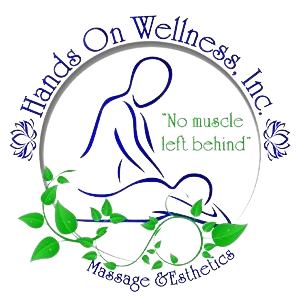
The Impact of Stress on Your Health and Practical Coping Strategies

Posted on November 28, 2023
Stress is an inevitable part of modern life, affecting people from all walks of life. While some level of stress can be motivating and even beneficial, chronic and excessive stress can have a detrimental impact on your health. In this comprehensive guide, we will delve into the profound effects of stress on your overall well-being and provide practical coping strategies to help you manage and mitigate its negative consequences. Read on to discover how you can lead a healthier, more balanced life.
Understanding Stress
Before we explore its impact on health, it's essential to understand what stress is. Stress is your body's natural response to various demands and challenges, both physical and emotional. When you encounter a stressful situation, your body releases hormones like cortisol and adrenaline, preparing you for a "fight or flight" response. While this reaction can be life-saving in dangerous situations, prolonged exposure to stressors can harm your health.
The Impact of Stress on Your Physical Health
Cardiovascular Health: Chronic stress can take a toll on your heart and blood vessels. It increases your risk of high blood pressure, heart disease, and stroke. Stress can lead to inflammation in the arteries, making them more prone to damage.
- Immune System: Stress weakens your immune system, making you more susceptible to infections and illnesses. Over time, this can lead to more frequent illnesses and longer recovery periods.
- Digestive Issues: Stress can disrupt your digestive system, causing issues such as indigestion, irritable bowel syndrome (IBS), and even exacerbating conditions like ulcers.
- Weight Gain: Stress can lead to unhealthy eating habits and weight gain. Many people turn to comfort foods during times of stress, which can contribute to obesity and related health problems.
The Impact of Stress on Your Mental Health
- Anxiety and Depression: Chronic stress is a significant contributor to anxiety and depression. It can overwhelm your mind, leading to persistent feelings of worry, sadness, and hopelessness.
- Cognitive Function: Stress can impair your cognitive function, affecting memory, concentration, and decision-making. It can also increase the risk of age-related cognitive decline.
- Sleep Disturbances: Stress often leads to sleep problems such as insomnia or restless sleep. Lack of quality sleep further exacerbates stress, creating a vicious cycle.
Identifying Stressors
To effectively manage stress, you need to identify the sources of stress in your life. Common stressors include work-related pressures, financial concerns, relationship issues, and health problems. Take time to reflect on your life and pinpoint the specific triggers that contribute to your stress.
Practical Coping Strategies
Now that you understand the impact of stress on your health and have identified your stressors, it's time to explore practical coping strategies to regain control of your well-being.
Stress Reduction Techniques
- Practice mindfulness meditation or deep breathing exercises to calm your mind.
- Engage in regular physical activity to release built-up tension.
- Prioritize relaxation techniques like yoga or tai chi to reduce stress levels.
Time Management
- Organize your tasks and set realistic goals to reduce feelings of overwhelm.
- Delegate tasks when possible to share the workload.
- Learn to say "no" when you need to prioritize self-care.
Healthy Lifestyle Choices
- Maintain a balanced diet rich in fruits, vegetables, and whole grains.
- Limit caffeine and alcohol intake, as they can exacerbate stress.
- Get adequate sleep to allow your body to recharge.
Social Support
- Reach out to friends and family for emotional support and understanding.
- Consider joining a support group to connect with others facing similar challenges.
- Seek professional help from a therapist or counselor if needed.
Work-Life Balance
- Set boundaries between work and personal life to prevent burnout.
- Take regular breaks during the workday to recharge.
- Schedule regular downtime to relax and pursue hobbies.
Positive Mindset
- Challenge negative thoughts and practice positive self-talk.
- Focus on gratitude and the things you can control.
- Engage in activities that bring joy and fulfillment.
Seek Professional Help
- If stress becomes unmanageable or leads to severe mental health issues, don't hesitate to seek professional help from a therapist or counselor.
Creating a Stress Management Plan
Now that you have an arsenal of coping strategies at your disposal, it's time to create a personalized stress management plan. Identify which techniques resonate with you and incorporate them into your daily routine. Remember that managing stress is an ongoing process, so be patient with yourself as you work towards a healthier, less stressful life.
At Hands On Wellness, Inc., stress is not just acknowledged; it's met with a holistic and proactive approach. I invite you to prioritize your well-being through the array of services and educational opportunities I offer. Take the step to transform how you experience and manage stress. Reach out or get in touch with me at (716) 400-5142 or [email protected]. Your journey to a stress-free, healthier life begins with a simple connection.
Your Wellness Starts Here!
Thank you for choosing Hands On Wellness, Inc. for your holistic well-being. To schedule a session or discuss your specific needs, kindly fill out the form below. I'm here to tailor a personalized experience just for you. Let's prioritize your wellness together.
Phone
(716) 400-5142
